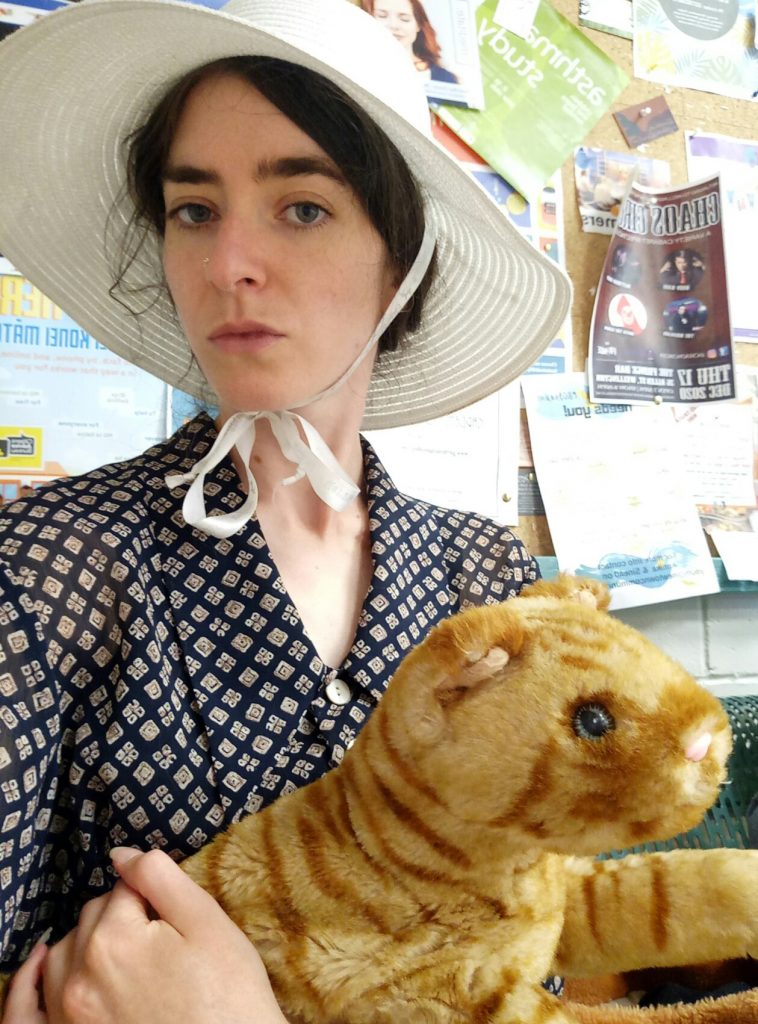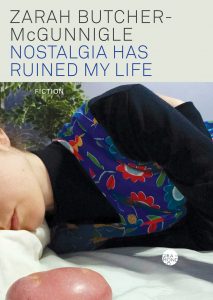Zarah Butcher-McGunnigle: a note on Nostalgia Has Ruined My Life
‘I don’t have any plans but I have to pretend I have some’ is a line I wrote in a document of 2016 notes, which ended up in the manuscript. My writing process tends to be that I write lots of small pieces and notes over a stretch of time and then I start to see themes and a narrative developing which I want to work with. Some months/years are just for taking notes and observing, other months are for making things using notes I’ve gathered. I started writing this book when I was very unsure about what I was doing in my life, as I had been for my entire twenties, spending huge chunks of time unemployed and depressed, going on dates to distract me from not having a job, and trying to manage chronic illness. People assign less value, respect and agency to the unemployed, and often treat it as a personal and moral deficiency rather than a societal failure. I’ve noticed how temporary unemployment is tolerable, as is temporary illness, but chronic or recurrent unemployment and chronic illness are not. While working on this book, I thought of Johanna Hedva’s ‘Sick Woman Theory’, in particular when she talks about how being sick is a capitalist construct, and how destructive it is to conceive wellness as default because it invents illness as temporary, and therefore care is only occasionally required; care isn’t normal.
When you don’t really feel like you have a future, or the sort of future that is available to you seems uncaring and undesirable, then you can get stuck in the past and nostalgia. So many people, taxi drivers and dates and family members and housemates, have encouraged me to find meaning in work rather than romantic relationships or anything else, and asserting that once I found a good job that I really liked then my life would improve. Although it is necessary for the majority of people to have a job, I don’t think it’s a healthy or useful thing to place so much value on being part of a capitalist system and believing that being part of it will lead to self-fulfillment and purpose. traditional ideas of success and full-time work are unachievable to many people with chronic mental or physical illness/disability.
If work and career aren’t appealing ways of gaining meaning, one might look to relationships as another source of fulfilment. As the narrator says near the beginning of the book; ‘I’m really depressed, maybe I should have a baby.’ Romantic and sexual relationships are much more interesting to me than developing a career. The underlying motivation for love and connection is positive, but of course people are incredibly unstable, and focusing intensely on relationships can also be disappointing and unsatisfying.
Even though this all sounds bleak and pessimistic, I’m not a pessimist and I think the inability to conceive of the future can sometimes lead to a healthy detachment and acceptance of life unfolding as it does. Even though I think a lot of things are low-key hellish, I also think most things are funny and absurd, and it’s important to be able to see the humour in everyday mundane situations.
— Zarah Butcher-McGunnigle


